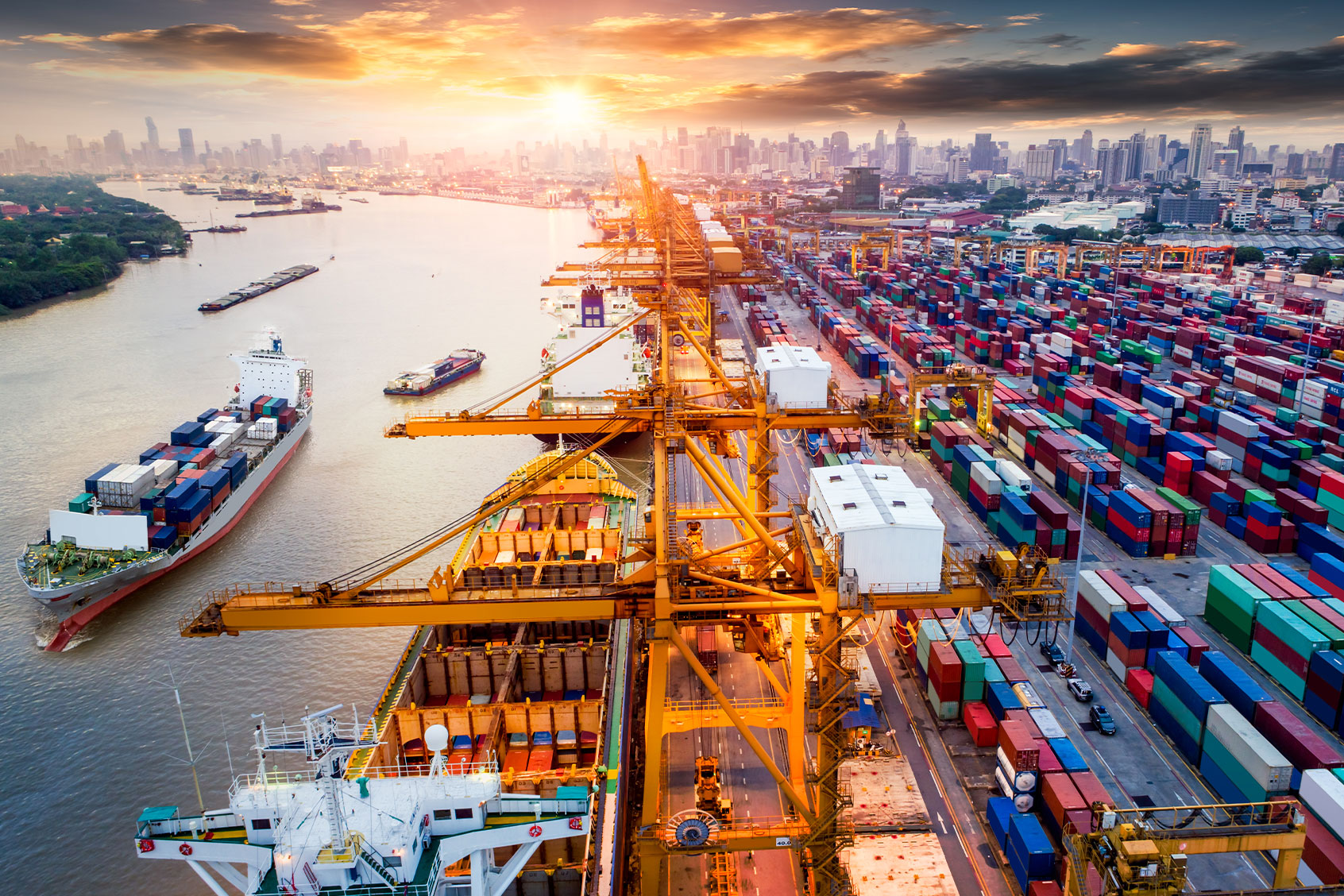2021 was a big year for the global shipping industry, as COVID-19 drove hordes of shoppers to the internet to buy new clothes, gadgets, furniture, and other goods. Booming e-commerce contributed to widely reported supply chain disruptions — but it also led to less-reported consequences for the climate and public health.
A new report from the nonprofits Pacific Environment and Stand.earth finds that the ships that carried imports for 18 of the U.S.’s largest retail, fashion, tech, and furniture companies emitted about 3.5 million metric tons of greenhouse gases in 2021, about as much as the annual climate pollution from 750,000 passenger cars. The ships transporting these companies’ clothes, computers, knickknacks, and other goods also released thousands of metric tons of cancer- and asthma-inducing nitrous oxide and particulate matter into port communities.
The report brings “awareness and accountability to the companies that were behind that onslaught of pollution in 2021,” said Madeline Rose, Pacific Environment’s climate campaign director. She called on retail companies to demand cleaner shipping fuels and practices from the freight companies they pay to transport their goods, with an eye toward net-zero emissions by 2030.
Pacific Environment’s report shines a spotlight on 18 major maritime importers in four retail categories, chosen based on their shipping emissions and their recognizability. Walmart, Target, and Home Depot led the pack in maritime climate and air pollution, together causing more than 1.7 million metric tons of carbon dioxide and 33 metric tons of methane to be released into the atmosphere in 2021. The report attributes this pollution to the brands’ partnerships with shipping companies whose vessels rely on carbon-intensive heavy fuel oil.
These vessels aren’t an anomaly; most of the planet’s maritime freight fleet is highly polluting, and the industry writ large accounts for about 3 percent of global greenhouse gas emissions.
Besides contributing to climate change, the ships that U.S. companies rely on also release hazardous air pollution in port communities, whose residents tend to be lower-income people of color. For example, ships carrying goods for Walmart emitted thousands of metric tons of nitrogen oxide, sulfur oxide, and particulate matter during voyages to the Port of Houston in 2021, potentially elevating the risk of cancer and respiratory problems for port residents.
Ships carrying products for Target and Home Depot caused similar pollution in port communities of Los Angeles, Long Beach, Seattle, and Savannah, contributing to what Pacific Environment called “human rights and environmental racism crises.”
Walmart and Home Depot told Grist they are working with freight partners to “encourage” sustainable shipping solutions. Costco declined to comment. Of the 15 other companies identified in the report — including Amazon, HP, Lowe’s, and Nike — only Dell and Ikea responded to Grist’s request for comment. Dell reiterated its previously announced emissions reduction targets, including the ambition to reach net-zero emissions across its supply chain by 2050. Ikea said ocean shipping an “important topic” that needs more focus, and that it aims to reduce its transport emissions 70 percent below 2013 values by 2030.
Some other global retail and furniture brands have pledged to reach net-zero maritime shipping emissions by 2040, but Rose said more is needed to spur ambitious action from the shipping industry. Rose said U.S. brands should demand their freight partners decarbonize by 2030 and lay out interim targets for the years before then. She also urged companies to reject ships that run on liquefied natural gas, or LNG — a fossil fuel that’s less carbon-intensive than heavy fuel oil but still contributes to climate change.
Big brands “have the power to say to their carriers, ‘We will not move our products on a new generation of LNG ships,'” Rose said.
Instead, she pointed to 48 “zero-emission capable” container ships in development worldwide, all scheduled to become operational by 2025. These ships are mostly set to run on green methanol, which can be zero emissions if it’s produced using electricity rather than from organic matter, but Rose said there are other promising pilot projects involving battery power, wind propulsion, and green hydrogen — a fuel produced by splitting a water molecule into hydrogen and oxygen using only renewable energy.
Experts say these technologies aren’t yet ready to be deployed at scale, but ambitious pledges — and pressure from state, national, and international regulators — could help bring them to market faster.
In California, environmental groups are currently calling on the state’s Air Resources Board, the agency that sets emissions standards for a number of pollution sources, to phase in a zero-emission requirement for all ships that dock in California ports. Federal legislation proposed last year would do something similar across the U.S. Experts also want tighter emissions targets from the International Maritime Organization, a U.N. body whose current nonbinding guidelines only call for the global shipping industry to halve its emissions by 2050, compared to 2008 levels.
This article has been updated to include responses from Costco and Ikea.
Correction: This article has been updated to credit the report to both Pacific Environment and Stand.earth.
This article originally appeared in Grist at https://grist.org/accountability/walmart-target-home-depot-lead-pack-of-retailers-emitting-millions-of-pounds-of-co2-through-shipping/.
Grist is a nonprofit, independent media organization dedicated to telling stories of climate solutions and a just future. Learn more at Grist.org


